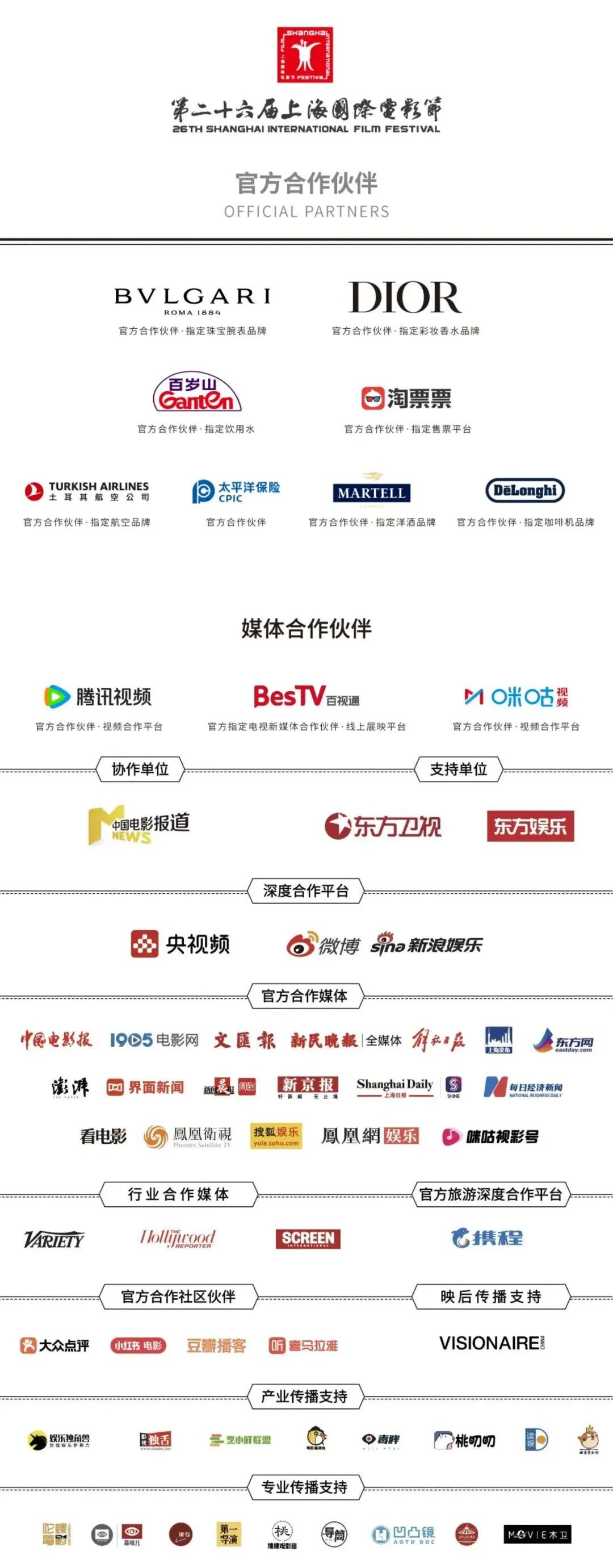SIFF EXPLORE | Exploration Classes Encouraging Young Creators to Experiment and Innovate
From June 20 to 22, the 26th SIFF EXPLORE section held three exploration classes, featuring mentors Arthur Jones, Wu Lang, and Momo Wang. They shared their creative journeys and experiences, encouraging young creators to actively experiment and boldly push boundaries.

Arthur Jones:
Documentaries are unscripted adventures, not structured PowerPoints
On the afternoon of June 20, British documentary director and screenwriter Arthur Jones led the first exploration class, titled "Real Life is the Best Story", sharing his insights into documentary filmmaking. In his view, the line between films and documentaries is blurred; both use the same cinematic language and grammar. The main difference is the script: "Documentaries don’t have pre-written scripts; the script evolves during the filming process."
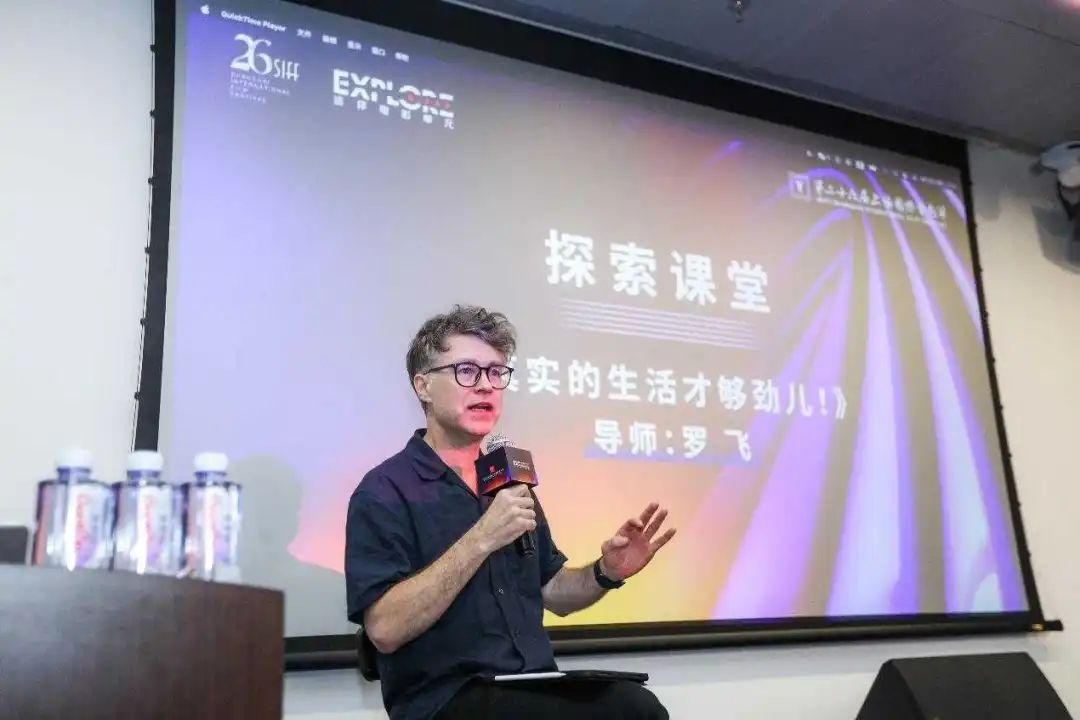
"I am a slow-paced creator, typically taking five to six years to complete a documentary. The creative process transitions from initial ambiguity to gradual clarity." Arthur Jones advised creators to spend time outside, seeing it as an essential lifestyle and work habit. "If you walk around for more than an hour, you might find the people and stories you want to film."
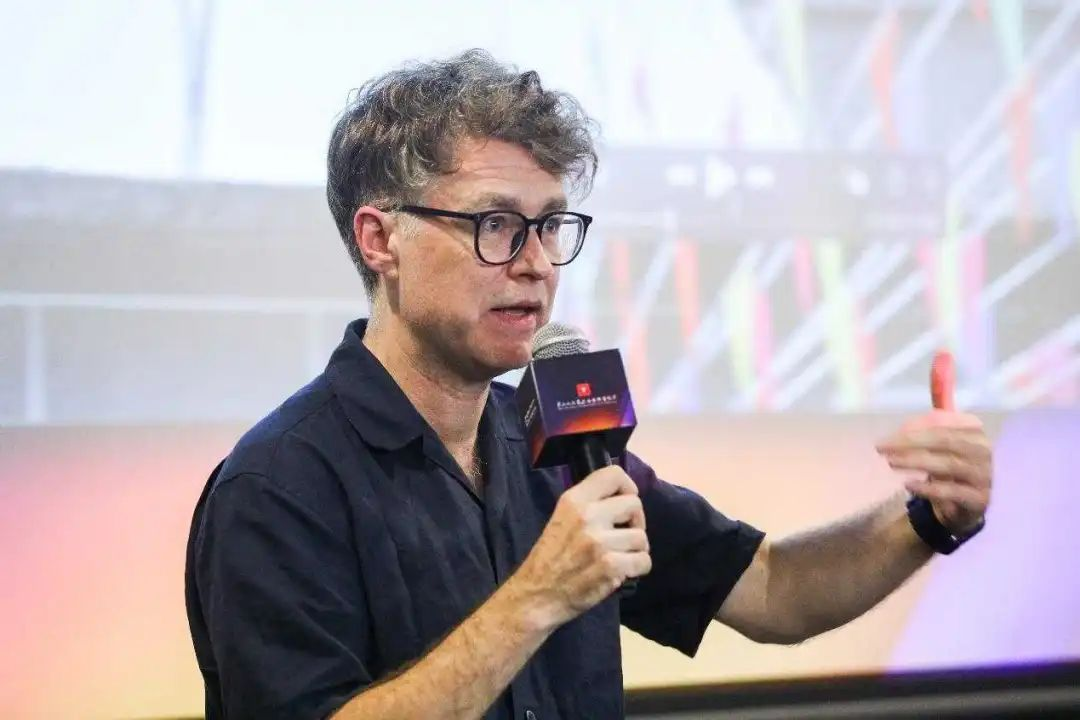
Jones is meticulous about format, admitting that it provides him with a sense of security. He also emphasized that a documentary’s primary responsibility is not strictly to the truth but to effectively portray its subjects. He has specific principles, such as disliking staged performances and close-ups from multiple angles. He insists that documentaries should capture real people and their stories, not performances.
Jones is also adept at using music, believing it helps blur the lines between documentaries and films, making documentaries more cinematic. "Making a documentary is not like making a PowerPoint. Regardless of the type of documentary, my enduring interest lies in real, living people," said Arthur Jones, reflecting his approach to creation.
Wu Lang:
A Minute is Enough to Tell a Good Story
On the afternoon of June 21, young director and screenwriter Wu Lang led the second exploration class, titled "Passion Fuels Dreams". Not formally trained in filmmaking, Wu Lang shared his personal journey, offering unique inspiration and practical encouragement to young people with filmmaking dreams.
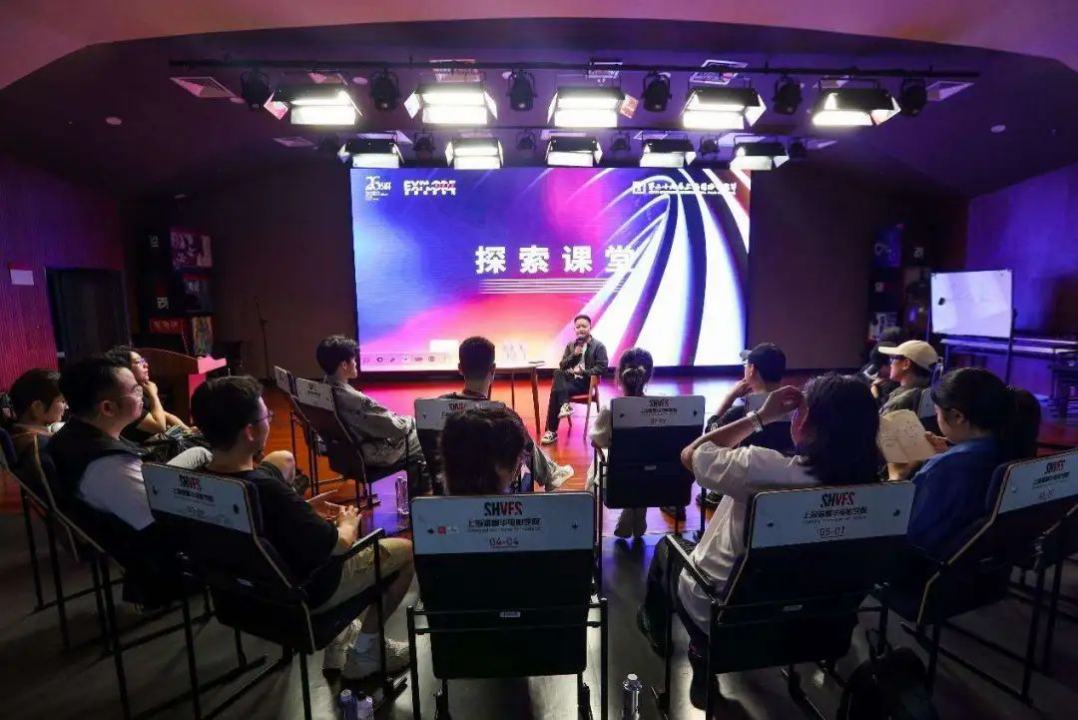
Drawing on his experiences creating both short and feature-length versions of his work, ABSENCE, Wu Lang emphasized that whether making a short film or a feature, creators must remain diligent at every stage. He advised creators to stay calm and be clear about why they are making the film and what kind of film they want to create.
Regarding the differences between short and feature films, Wu Lang believes that story, atmosphere, and expression are not the goals of creation but the starting points—the entryway into the world of film. He stressed that short films and feature films are not dependent on each other; aside from duration, there is no difference. In filmmaking, he focuses on audiovisual language, comparing it to presenting a dish through images to convey its color, aroma, and taste. "Audiovisual language relies on human perception and experience. A film must use this language to reach the audience."
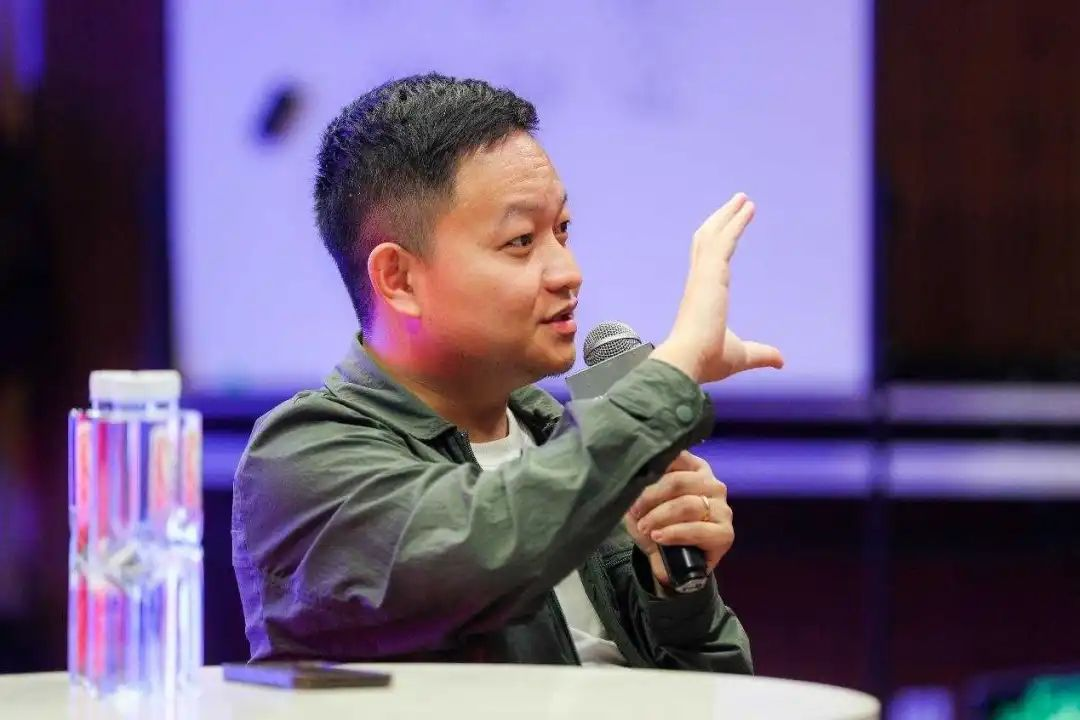
Is a 5-minute film too restrictive? Wu Lang argued that even 1 minute is enough to tell a good story. The key is "to continually find ways to tell the story well in a shorter time, expressing what you most want to convey". He encouraged young people to be bold in their attempts. To him, "A story has an ending, but life does not. Finishing a script is not the end of the story; it is the beginning of a new one."
Momo Wang:
Avoid getting too caught up in refining technology; creativity is what truly lasts
On the morning of June 22, Momo Wang concluded this year's SIFF EXPLORE exploration class with a perfect finish. She gained rapid fame in her university days by creating the Tuzki emoticons. Having started early, her life experiences are rich and diverse. Her growth story, career path, pursuit of artistic creation, and insights into life are highly representative and worth sharing with young creators.
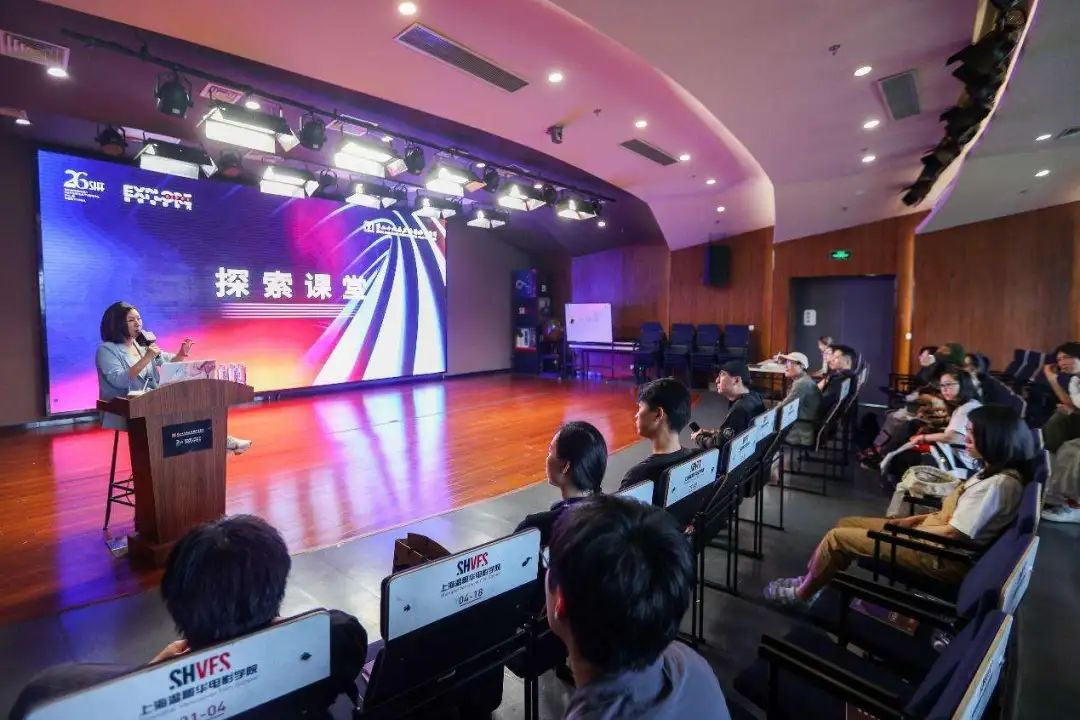
Momo Wang considers herself fortunate but acknowledges her hard work. Reflecting on her journey from an independent creator to becoming part of a major Hollywood animation studio, she mentioned that her early days were very free, with a lifestyle of her choosing. After joining a big studio, she had numerous opportunities to work on significant projects, which enhanced her overall abilities. However, this also came with trade-offs. She advised young people not to fear making choices in different directions and career paths.

Speaking of the application of AI in creation, she shared her experiences in animation, from scripting and concept design to video production. Through examples, she demonstrated to young filmmakers how AI technology is profoundly transforming film and television art creation. Nonetheless, she maintains a calm and objective view of AI technology. She cautioned against getting entangled with technology or being led by AI because "creativity is what truly lasts; technology can make our creativity more complete".
For the future of young creators, Momo Wang advised maintaining individuality and persevering in continuous creation, regardless of opportunities or setbacks. She emphasized the importance of self-promotion and sharing new works, ensuring that their creations reach and influence a broader audience.

